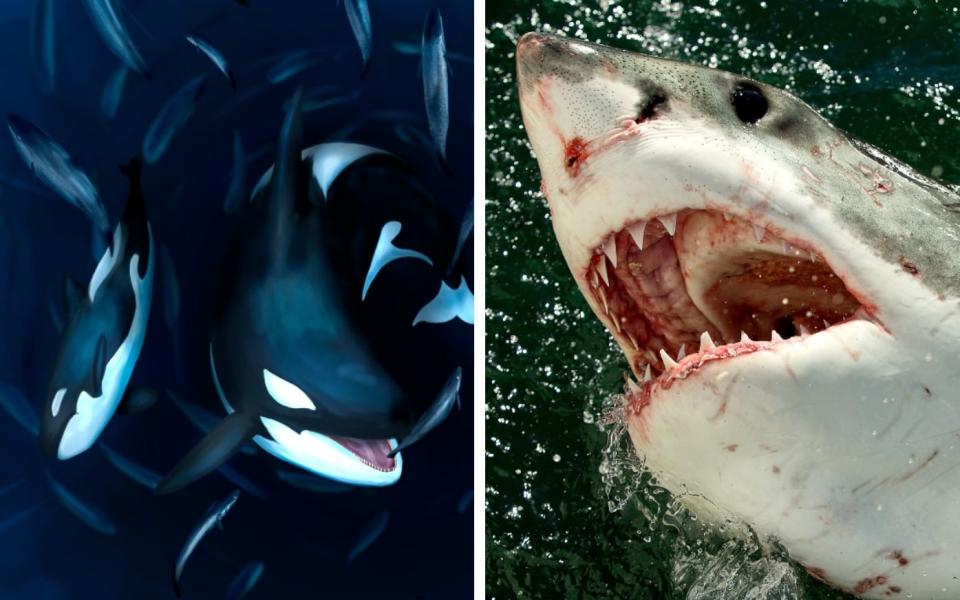Killer whales take on great white sharks in a gory battle for the seas

Killer whales are deliberately hunting sharks and eating their organs after running low on their traditional food, a study has found.
A pair of orca have been butchering great white sharks off the coast of South Africa for the last five years. Seven have washed up after having their livers cut out. Some have also had their hearts removed precisely by the razor-sharp teeth of the Orca double-act.
Now, what was once a great white shark stronghold off the Gansbaai coast is actively avoided by the predators, with the killer whales forcing them out.

South African researchers, led by Rhodes University, attached trackers to 14 sharks since the orca attacks began in 2017. They found evidence of an “immediate departure” after the two whales killed at least five great whites in six months.
Data show that the sharks responded rapidly to the new threat and ceded the territory to the new apex predator on the block. However, another shark, the bronze whaler, has moved into the area.
Watch: Orcas team up to take down hammerhead shark in Galapagos
This smaller shark is often eaten by great whites and is prepared to risk the threat of the orcas in exchange for ample food, the researchers say.
The removal of great whites from the area and insurgence of the killer whales and the bronze whaler means the balance of power at the top of the food chain is drastically different, likely causing problems for the entire ecosystem.
Change in top predators' behaviour
Researchers now believe that orca are not only maximising their available food by killing and eating other predators, but actively carving out a new niche as shark-eaters.
Alison Towner, study author and a senior white shark biologist at the Dyer Island Conservation Trust, said: “This change in both top predators’ behaviour could be related to a decline in prey populations, including fishes and sharks, causing changes in their distribution pattern.
“The orcas are targeting subadult great white sharks, which can further impact an already vulnerable shark population owing to their slow growth and late-maturing life-history strategy.
“Increased vigilance using citizen science (e.g. fishers’ reports, tourism vessels), as well as continued tracking studies, will aid in collecting more information on how these predations may impact the long-term ecological balance in these complex coastal seascapes.”
The research is published in the African Journal of Marine Science.

 Yahoo Movies
Yahoo Movies 
